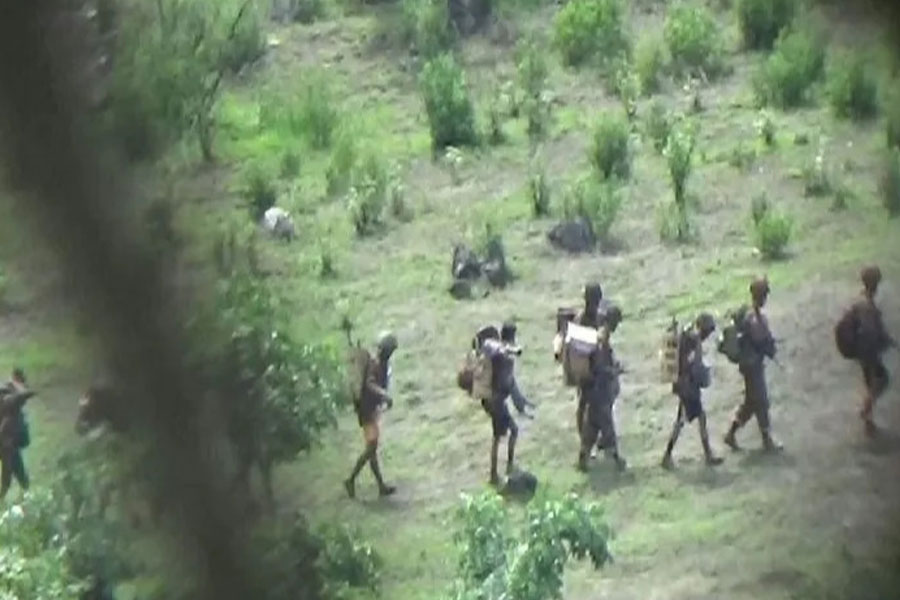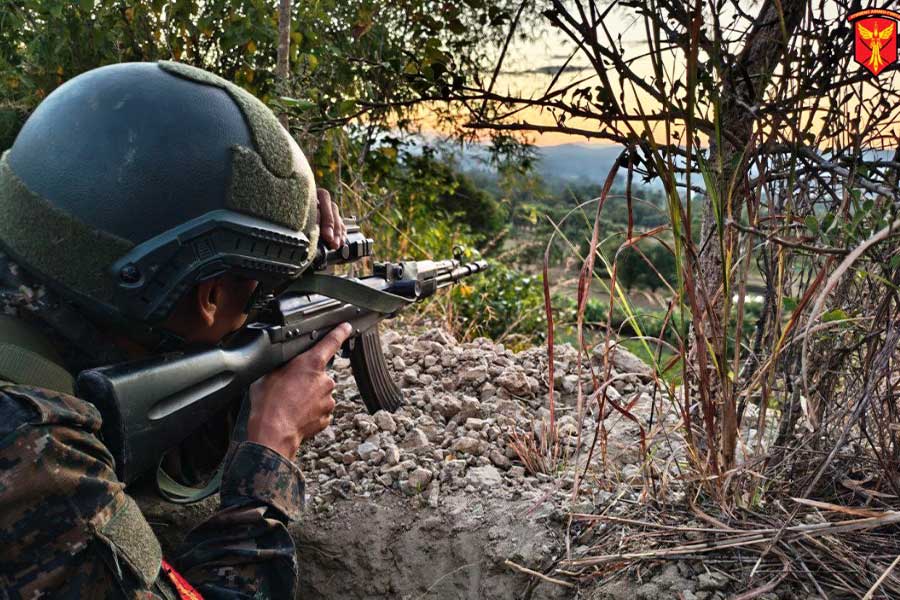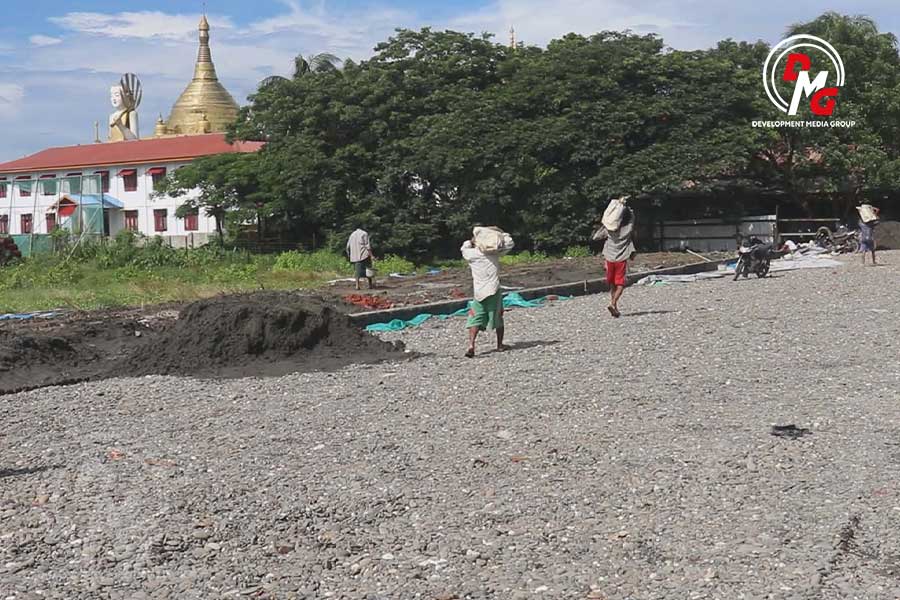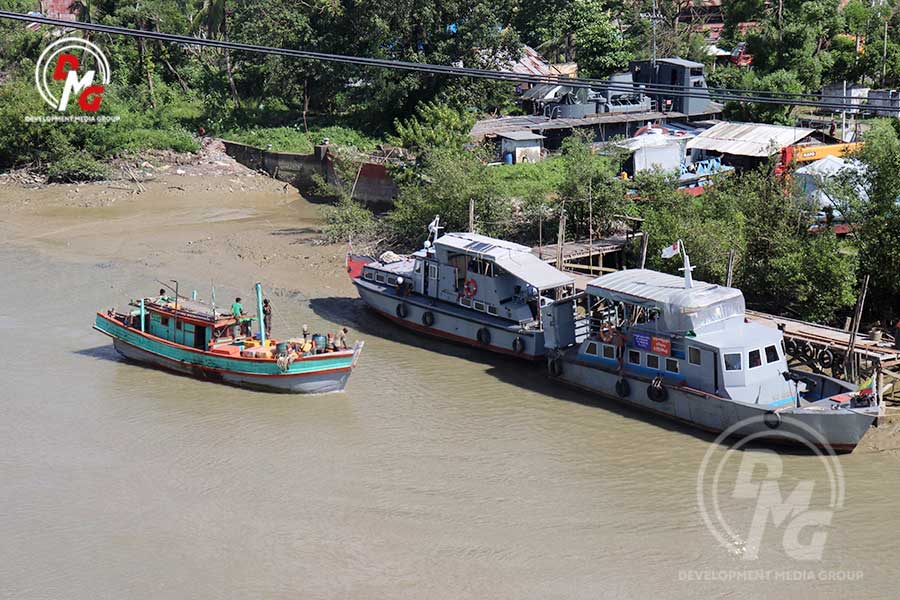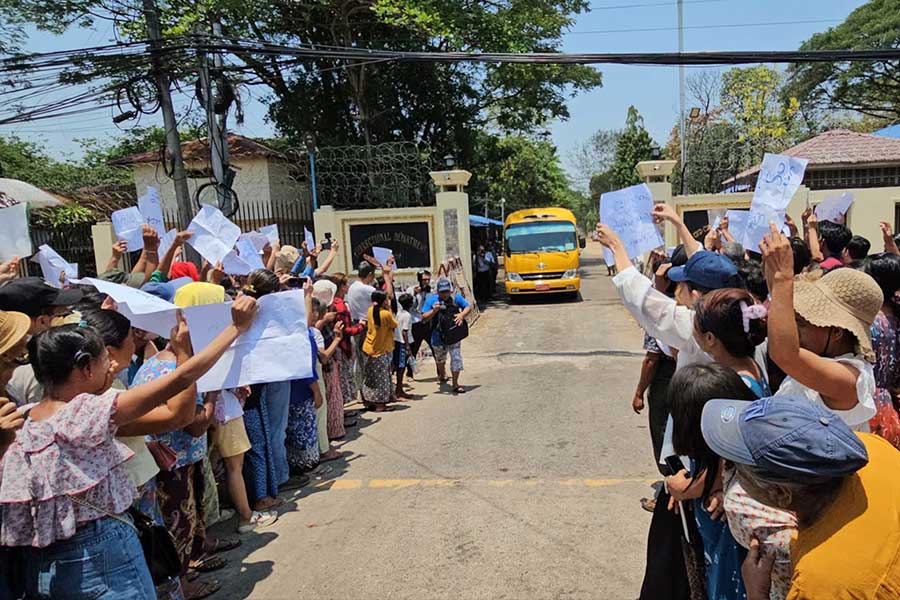- Junta launches major offensive to retake strategic Mawchi mining town
- Extreme poverty drives Sittwe residents to dismantle abandoned houses for income
- Weekly Highlights from Arakan (Feb 23 to March 1, 2026)
- Over 300 political prisoners freed from 10 prisons nationwide
- DMG Editorial: Between War and Opportunity - A New Border Reality for Bangladesh and Arakan
Plaintiff questioned in case against four Taungup men facing terrorism charges
Four men including the vice chair of the Arakan National Party (ANP) in Taungup Township, who have been charged under Myanmar’s Counter-Terrorism Law, appeared in court on August 12 for a hearing at which the plaintiff, Police Major Zaw Myint Tun, was questioned.
13 Aug 2020
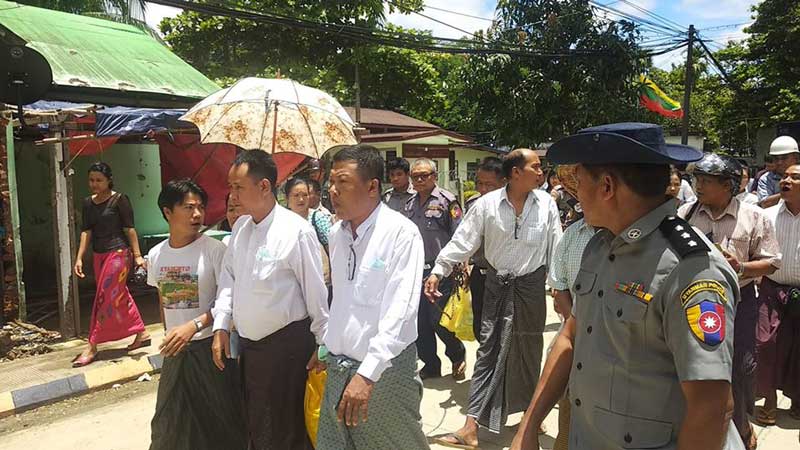
Aung Htein | DMG
13 August, Taungup
Four men including the vice chair of the Arakan National Party (ANP) in Taungup Township, who have been charged under Myanmar’s Counter-Terrorism Law, appeared in court on August 12 for a hearing at which the plaintiff, Police Major Zaw Myint Tun, was questioned.
The ANP vice chair for Taungup Township, U Wai Thaung, is on trial before the township court along with the chair of the Taungup Township Development Affairs Committee, U Zeyar Kyaw; his younger brother U Sithu Kyaw Zan; and an ex-member of the Taungup Township Development Affairs Committee, U San Ngwe. They have been charged under Sections 50(a) and 52(a) of the Counter-Terrorism Law.
Police Major Zaw Myint Tun from Sittwe’s Special Branch (SB) filed a lawsuit against the four men on suspicion of having illegal ties to the Arakan Army.
The plaintiff has accused U Sithu Kyaw Zan aka Michael of having links to the Arakan Army in the complaint, but the names of the three other accused were excluded, the defendant’s lawyer U Tin Nyo said.
“The plaintiff accused U Michael of having connections with the Arakan Army during the hearing,” he said. “The plaintiff denied my question when I asked him as to whether the three men were U Michael’s accomplices or not. He replied that the three men would be investigated and if they were found guilty, they would be charged. But if the three men don’t have any links to the Arakan Army, they would be freed.”
In addition to the plaintiff, Police Major Khin Maung Hla, a police inspector and another man were questioned as prosecution witnesses at Wednesday’s hearing, he added. The court has fixed the next hearing date for August 24.
Section 52(a) of the Counter-Terrorism Law is a sentencing provision for those found guilty of “acts of terrorism,” and stipulates a minimum punishment of three years in prison with a maximum seven years behind bars.




